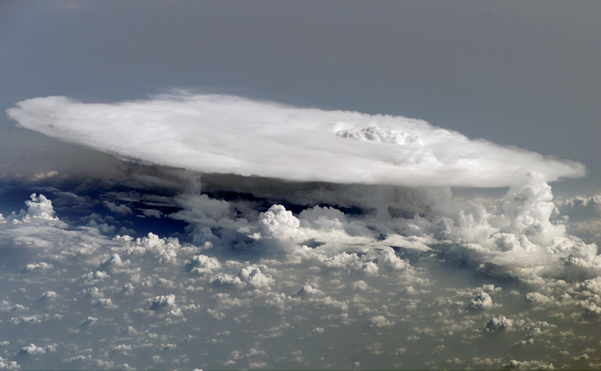Dynamics of mesoscale convective systems
- Academic lead
- Prof John Marsham, ICAS/School of Earth and Environment, J.Marsham@leeds.ac.uk
- Industrial lead
- Dr Alison Stirling, Met Office, alison.stirling@metoffice.gov.uk
- Co-supervisor(s)
- Dr Stephen Griffiths, School of Mathematics, S.D.Griffiths@leeds.ac.uk, Prof Doug Parker, School of Earth and Environment, D.J.Parker@leeds.ac.uk
- Project themes
- Environmental Flows
 NASA image of organised deep convective storms over Africa
NASA image of organised deep convective storms over Africa
Tropical weather and climate is dominated by deep convection (“thunderstorms”). Organised systems of convection (mesocale convective systems, MCSs) are a primary cause of extreme weather, and in many tropical locations a primary source of rainfall. A key characteristic is mesoscale flows, generated by the deep convection, that feedback on the convection creating large organised a system. It has been known since at least the 1960s that vertical wind-shear is fundamental in the organisation of MCSs, but there are several theories for the mechanisms for these effects, and no comprehensive theoretical model.
MCSs are very poorly represented in current global models. Even in the new generation of convection-permitting regional models notable systematic errors have been found, notably in the response to vertical wind shear. We are on the cusp of a revolution in global modelling, with global convection-permitting simulations now possible. It is now critical that we understand the fundamental dynamics of these systems, and their representation in models.
This PhD will build on past and ongoing work at Leeds to use idealised models and theory to develop and test theories for the role of shear, and then apply this new understanding to state-of-the-art regional simulations from the Met Office model.
